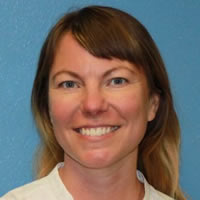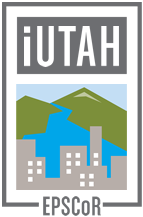News and Highlights
This is a list of past iUTAH EPSCoR news from 2012 to 2018.
December 7, 2015
Study Documents Utahns' Perceptions of Water Situation

Utah State Today featured an article on the household survey by a consortium of Utah universities provides extensive scientific data on current residential water management and public support for a range of water policies.
With experts predicting rapid population growth and changes in weather patterns, the perceptions and behaviors of Utah residents will be a critical driver of water resource conditions and quality of life in the state. A survey of households by a consortium of Utah universities provides extensive scientific data on current residential water management and public support for a range of water policies.
Researchers from Utah State University and the University of Utah came together as a team under the iUTAH program, a $20 million interdisciplinary research effort funded by the National Science Foundation to study and protect the state’s water sustainability. More than 2,300 households were surveyed in Cache, Salt Lake and Wasatch counties in the summer of 2014. The survey collected detailed information about how local residents in distinctive neighborhoods use and think about water in their daily lives….
November 17, 2015
iUTAH Researchers Release Findings in Ecosphere
In a recent paper published in Ecosphere, a journal of the Ecological Society of America, iUTAH researchers have examined how waterways in human-impacted ecosystems receive nitrogen from numerous point and diffuse sources that contribute to eutrophication and alter the composition and function of riparian and aquatic communities. The article, published on October 28, 2015, builds on earlier studies, which suggest that fertilizer, atmospheric deposition, animal waste, waste water effluent, and septic systems typically represent important nitrogen sources in urban, urbanizing, and agricultural watersheds. Authors of the article include Steven J. Hall, Rebecca L. Hale, Michelle A. Baker, David R. Bowling, and James R. Ehleringer.
The article can be viewed in its entirety under the title Riparian plant isotopes reflect anthropogenic nitrogen perturbations: robust patterns across land use gradients.
October 20, 2015
Nibley's water future: City discusses how new well will impact water conservation
Check out the Herald Journal's follow-up article on iUTAH researcher Dr. Doug Jackson-Smith's presentation of the 2014 iUTAH household survey on Utah’s water future findings to the Nibley City Council.
October 8, 2015
iUTAH Post-doctoral Spotlight: Dr. Rachel Gabor, RFA1/2

Rachel started out as an analytical chemist with a focus on nanofabrication and nanoparticles (Harvey Mudd College, BS, University of Minnesota, MS). She then spent several months doing Hurricane Katrina recovery in New Orleans and saw first hand how human alterations to the landscape impact our water systems and the ecosystem services they provide. Inspired to study watersheds, she went to the University of Colorado Boulder (MS, Water Resources Engineering, PhD, Environmental Studies) where she worked with the Boulder Creek CZO studying organic matter in soils and streams.
Rachel is excited about the interdisciplinary nature of the iUTAH project, and particularly the chance to study watersheds in an urban system. In the six months she’s been with iUTAH, she participated in several sampling campaigns along Red Butte Creek and the Logan River with a focus on how to use biogeochemical tracers to understand the connections between the landscape and the stream.
October 1, 2015
iUTAH Post-doctoral Spotlight: Dr. Krishna Khatri, RFA3

Krishna Khatri is a Post-doctoral Research Fellow with iUTAH working with Courtenay Strong in the Department of Atmospheric Sciences at the University of Utah. Krishna received his PhD in Water Resources Engineering (in the area of risk and uncertainty analysis) from Delft Technical University, Netherlands; MSc in Integrated Urban Water Engineering from UNESCO-IHE, Netherlands; MPA in development study and BE in Civil Engineering from Tribhuvan University, Nepal. He has more than 10 years of experience working with governmental organizations, consultancies, and higher education institutions in Nepal, UK, Netherlands, and USA. Prior to coming to the University of Utah, he worked as a Senior Research Fellow at the University of South Florida. He was also an Honorary Research Associate (Sept 2007 to April 2011) in the Department of Civil Engineering at the University of Birmingham, UK. His main areas of expertise and interests include developing sustainable water resources and urban infrastructure system; risk and uncertainty analysis; and application of soft computing techniques for system modeling; and decision making under risk and uncertainty.
Krishna’s key role in iUTAH RFA-3 will be developing innovative frameworks, new methodology, and system models for application in Utah. The main objective is to analyze the important interactions and interdependences within and among natural, built, and social systems, in order to enhance the resilience and sustainability of water resources and water infrastructure in Utah.
September 24, 2015
iUTAH Post-doctoral Spotlight: Dr. Melissa Haeffner, RFA2

Melissa is interested in how cities grow in the desert. She explores this question by examining how the climatological, hydrological and socio-political contexts in which we live shape how we are able to manage water resources. She employs a variety of social science methods depending on the project including: surveys, interviews, stakeholder focus groups, scenario planning, mental mapping and visual sociology. Pursuing her research goals requires the ability and willingness to transcend disciplines, which is why Melissa seeks out opportunities to work with engineers, geographers, atmospheric scientists, and others. To that end she has pursued degrees in Sociology (DePaul University, BA/MA), Urban Planning (Massachusetts Institute of Technology, MS) and Ecology (Colorado State University, PhD). She is excited to use her experience to innovate interdisciplinary research pursuits with iUTAH affiliates and work with community decision-makers to plan for environmental and social sustainability in the Wasatch Front.


